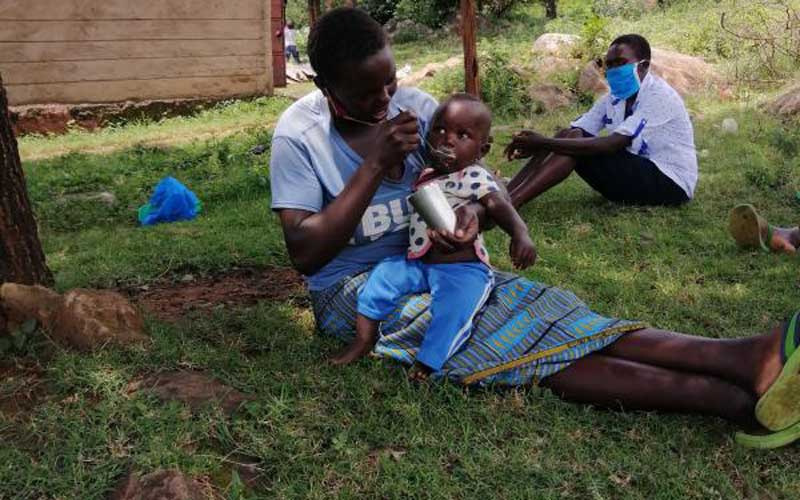×
The Standard e-Paper
Stay Informed, Even Offline

Irene Kosgei feeds her child with the insect-enriched porridge. [Standard]
They gathered under acacia trees to shield themselves from the searing heat as the children clung to their laps, crying for breast milk.